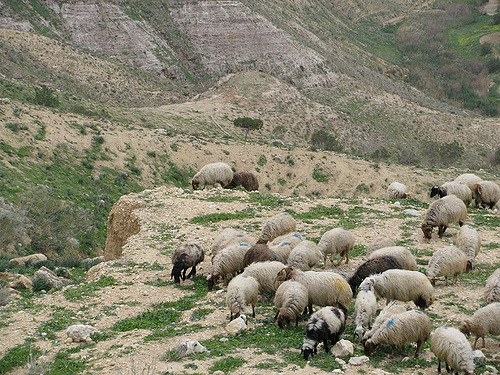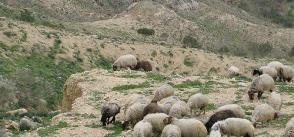
Improving the health of livestock of smallholder farmers in the border areas of Jordan
Agriculture is an important part of the Jordanian national economy.
The majority of the rural population in Jordan is involved in agriculture, and many livestock farmers live in areas close to the border with Syria, from where hundreds of thousands of refugees, many with their livestock, have fled since 2011.
This livestock has not received regular vaccination and treatment against animal diseases, due to the disruption of services. As a result, transboundary animal diseases (TADs) have been observed among Jordanian livestock. This has led to an overall decline in the quality of services, a decrease of subsidies, lack of economic opportunities, and an increase in prices.
This project was designed to support the Jordanian authorities and livestock keepers to contain the risks and prevent TADs outbreaks from spreading, through the establishment of high standards of disease surveillance, early warning capabilities and efficient management of animal health information.
Read/download the publication by/via FAO web site.
[Photo by Luigi Guarino | Flickr]







